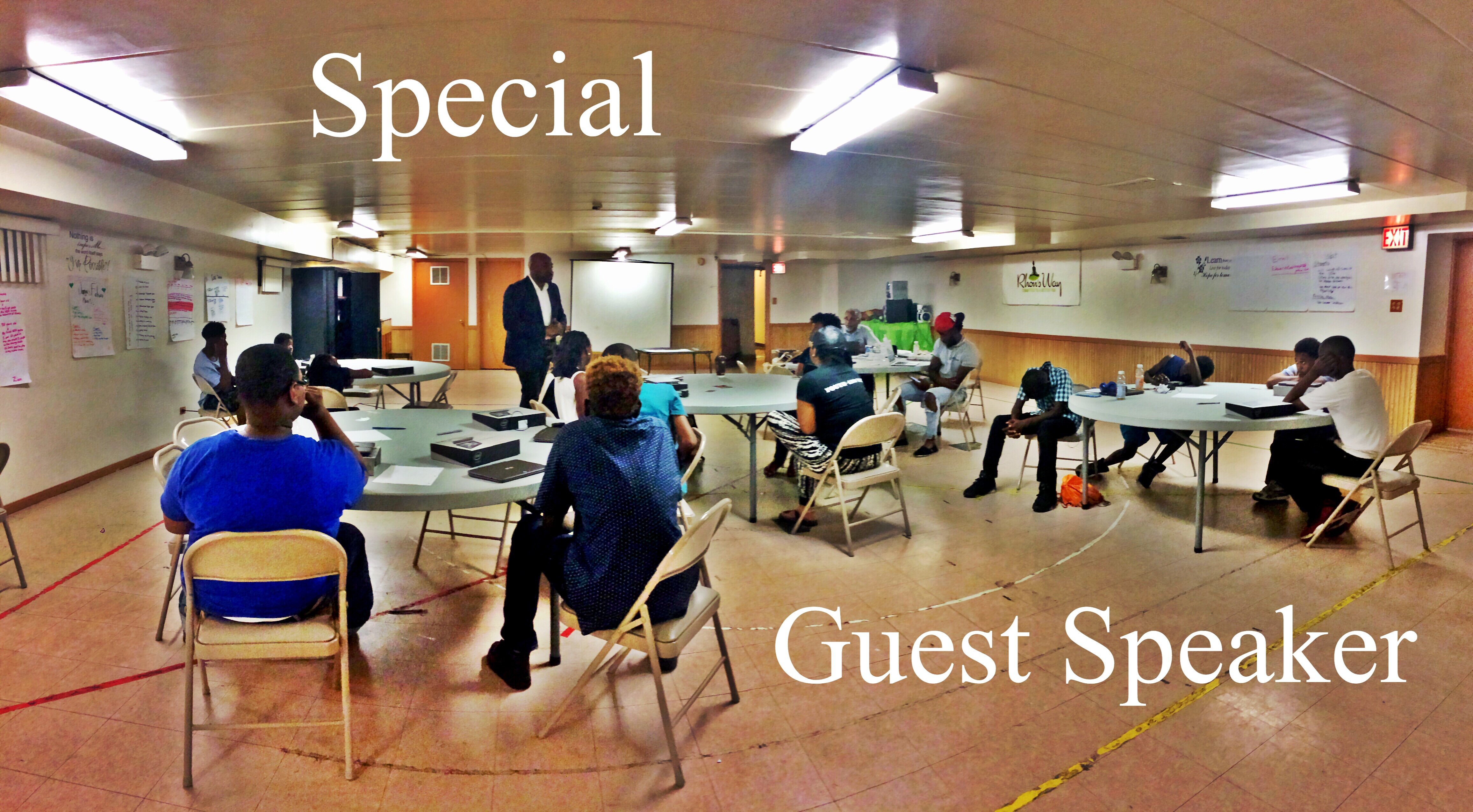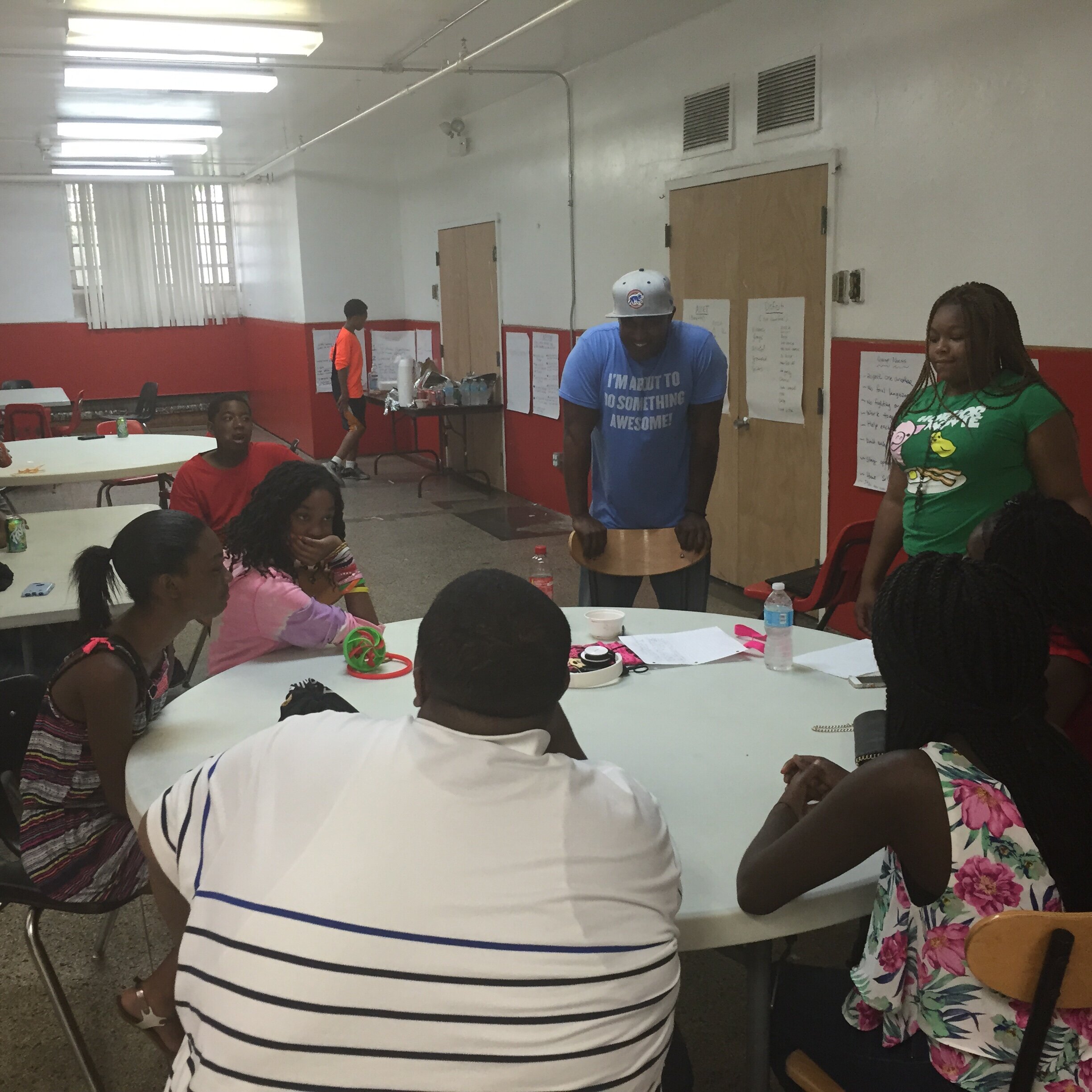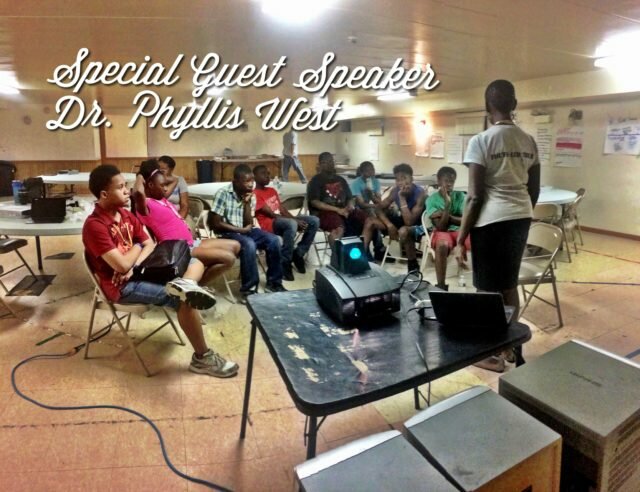On September 9th, Smart Chicago hosted the first meeting of Connect Chicago’s Digital Skills Road Map Working Group. Its purpose: to define and inventory “digital skills”, understand the taxonomy and ordering of these skills, and ultimately prescribe those skills to personal goals.
By design, this working group was about understanding skills leading to goals, rather than tools or programs. We loosely envision the result of our work as a “road map” or “framework” — something all programs and trainers in Chicago can eventually use to help create personalized learning pathways for those they serve.
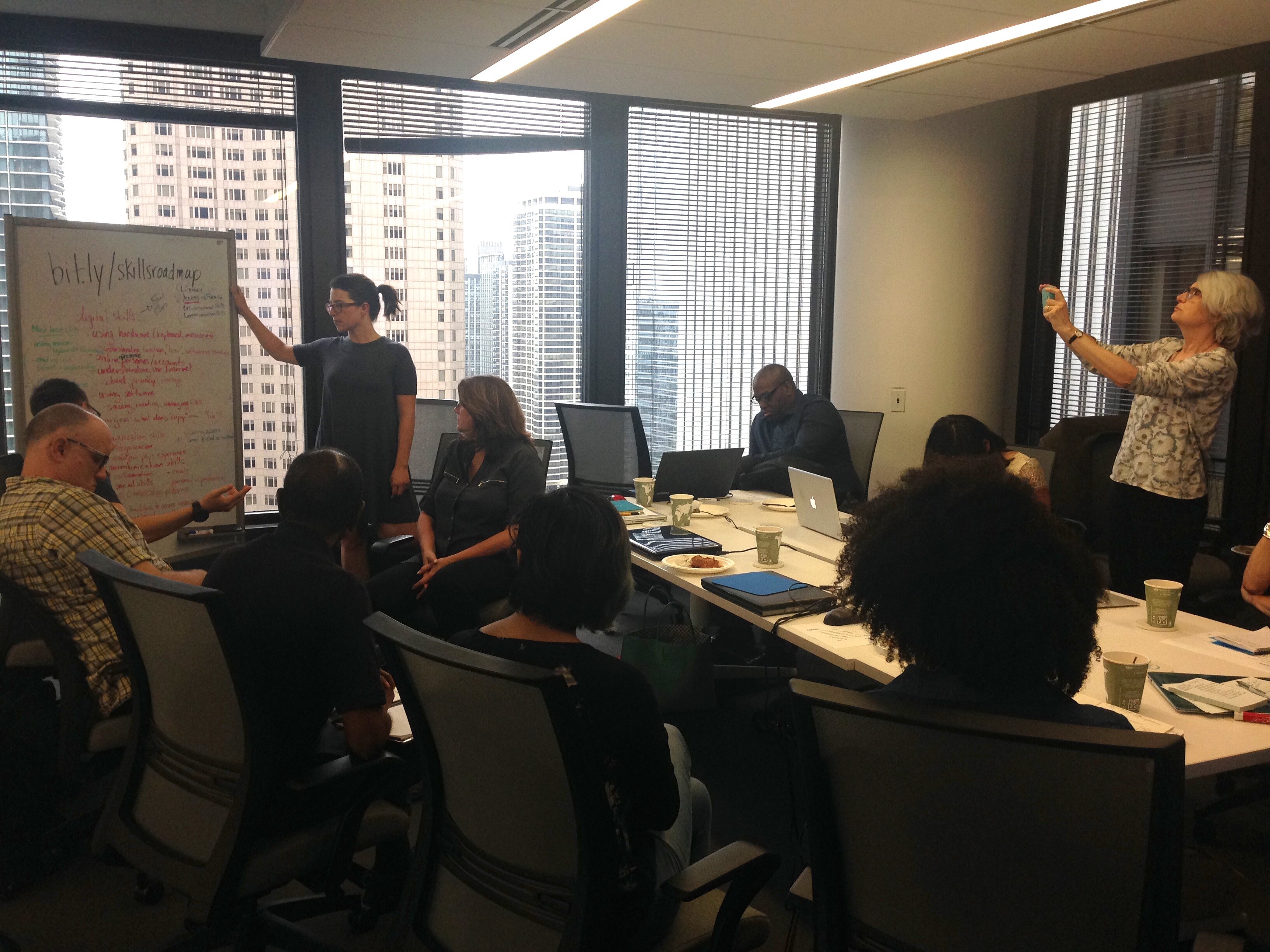
Excited to be road mapping digital skills with colleagues at @SmartChicago #connectchicago @digitalyouth @ExploreChi pic.twitter.com/iB8HLiyqS0
— Sybil (@smadisonboyd) September 9, 2016
Here is the presentation and activities that we used to frame our initial conversation:
Background
Participants in #ConnectChicago Digital Skills Roadmap wk grp lay groundwork for tool to serve Chicago @SmartChicago pic.twitter.com/nh5dwMEFXN
— Literacy Works (@LitWorksChicago) September 9, 2016
Great working group #ConnectChicago @SmartChicago pic.twitter.com/Rnb3bTjlbt
— Eric Freedman (@ericmfreedman) September 9, 2016
As working group members introduced ourselves to one another and shared our motivations for being in the room, several themes arose:
- Even before imparting skills and training, we need to work together to combat the relevancy barrier to broadband adoption — we should work to articulate the value of skills for education, workforce development, and employment
- In the continuum of digital skills, we can’t ignore literacy, hardware use, and basic typing
- It’s not just about the skills of individuals. Businesses need skill development and training as well
We also recognized the great work that has laid a foundation for our understanding of digital skills in Chicago. We took inspiration from Mozilla Web Literacy — a useful framework for web literacy, or the skills needed to utilize the power of connectivity. We ultimately interpreted our set of skills to be broader that those in the Web Literacy framework, including offline computer tasks as well. We also sought to organize skills and learning paths by common goals, rather than just skill categories or levels of difficulty.
Another resource that played into our conversation were the results from CUTGroup #21 — focus groups on digital learning opportunities in Chicago conducted at the end of 2015. One of the biggest takeaways from those focus groups was that curricula, programs, and classes should be framed in terms of learners’ motivations — their economic, professions, civic, personal goals driving them to learn more about technology.
Defining “Digital Skills”
During the first session of the Working Group focused on “Activity #1: Defining Digital Skills.” We saw this as a crucial, foundation task — a way for all of us to check our assumptions, get on the same page about what we are “mapping,” and standardize language across our organizations.
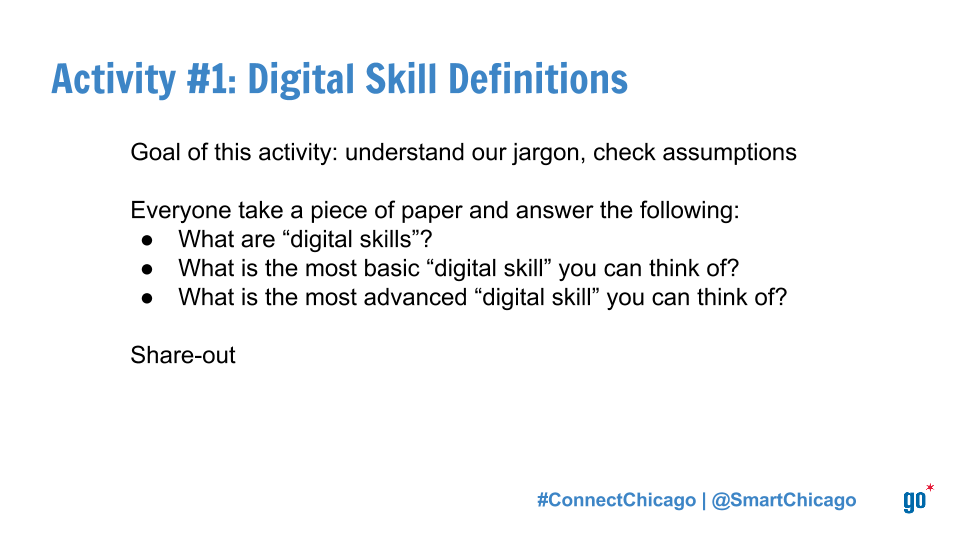
We broke out into groups to tackle these questions. Below are the notes from those breakout groups:
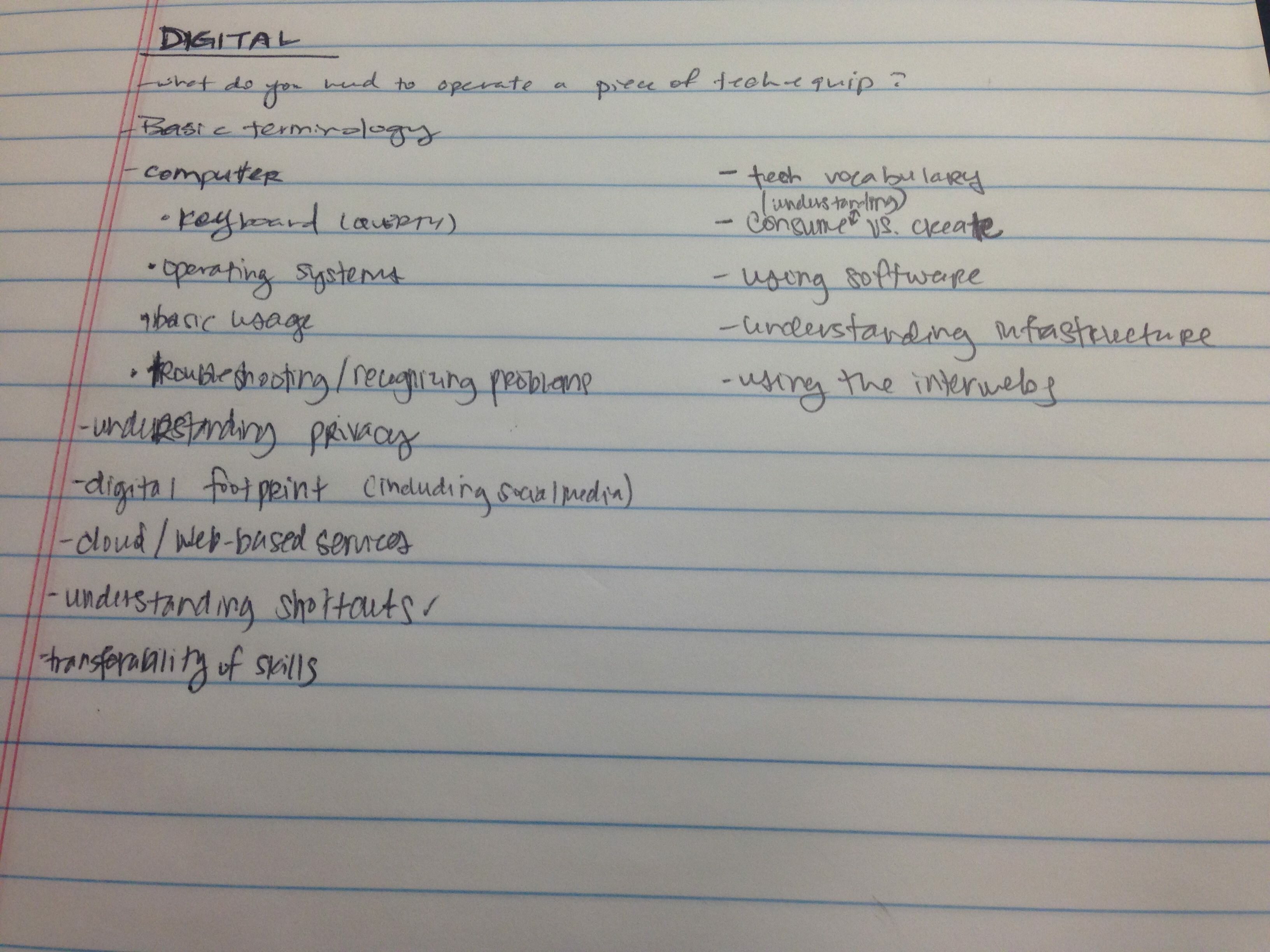
Notes from Breakout Group 1. They took an excellent inventory of foundational skills.
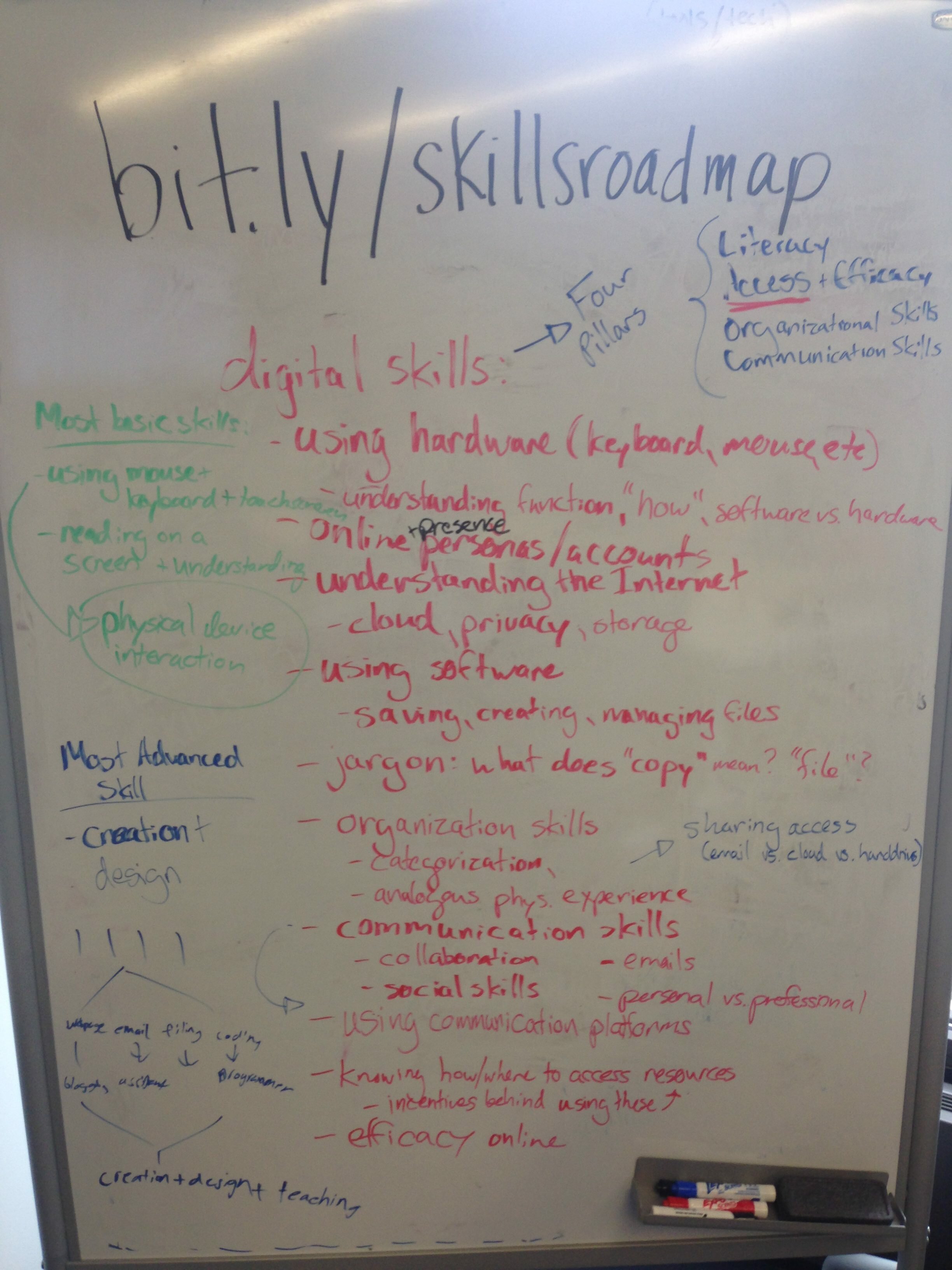
Notes from Breakout Group 2. Note the “four pillars” of digital skills that they used to frame their conversation.
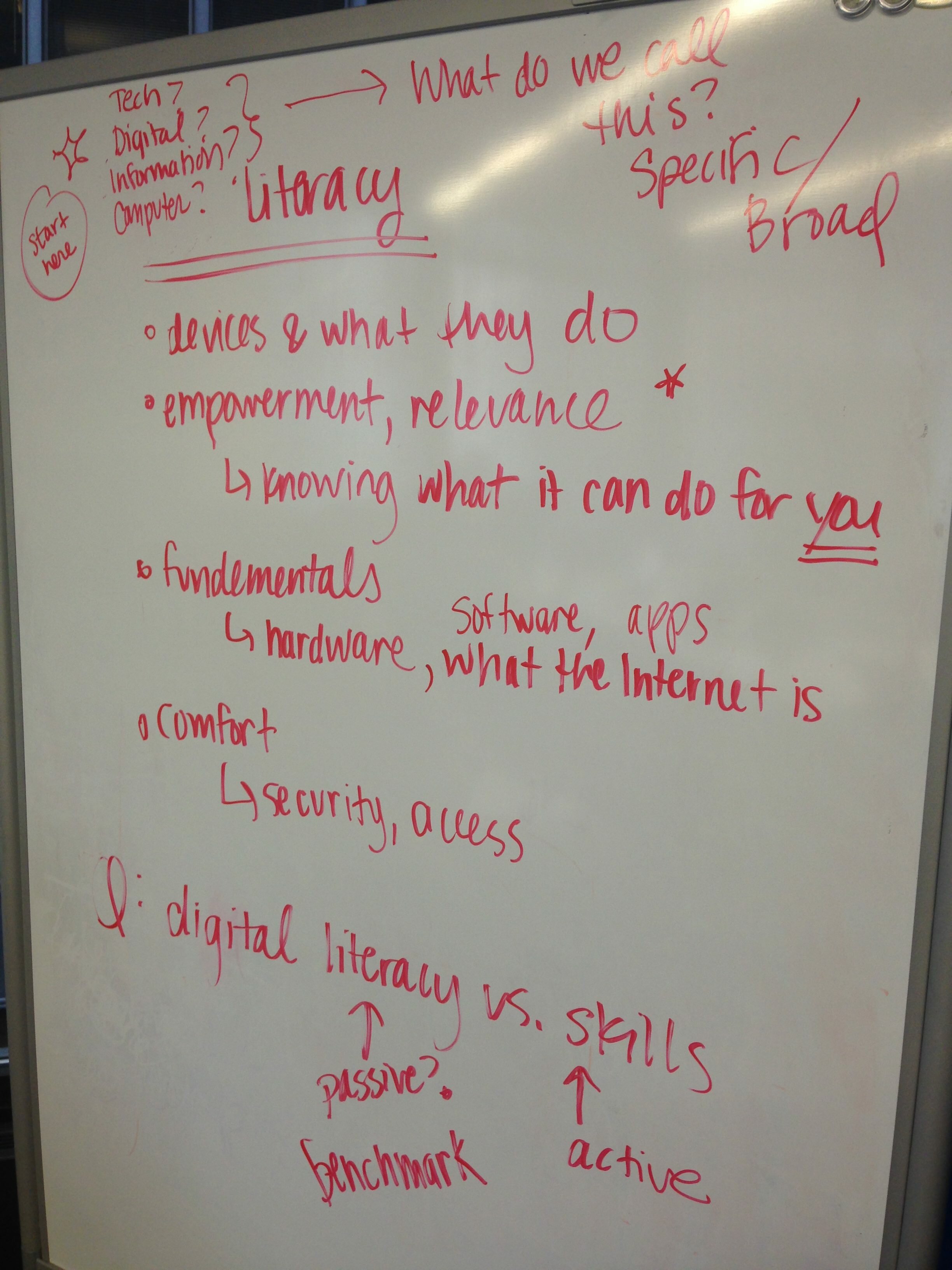
Notes from Breakout Group 3. This group checked assumptions, debating the appropriate language to describe the skills and “literacy” the working group was grappling with.
Here are several memorable takeaways from Activity 1:
- Our target “starting point” for digital skills is many steps before opening a browser — knowing about hardware, parts of a device, which devices are best, and conceptually what technology and connectivity can do to improve your life, were all mentioned as foundational steps
- “Digital Literacy” was discussed as a benchmark (vs. “digital skills” which is a spectrum). As a benchmark, digital literacy seemed to represent the point where a learner was (1) interested or invested in learning (2) confident to take next steps in learning (3) knew what there was to learn and (4) was familiar with the basic language of technology. In this way, “digital literacy” mirrored the idea of traditional literacy, where, at a certain level of skill a reader was literate enough to read and learn how to read better or even teach themselves how to read better.
- Our target “ending point” is creation/design — when a learner not only is competent in consuming information through technology, but is also building new (and relevant/useful) things with images, code, video, etc.
- There are still issues with common language in our field. We discussed and debated the merits of terms: digital skills vs. computer skills vs. technology skills. None seemed to accurately capture the 21st Century collection of skills we were attempting to map. This will certainly be a topic we revisit.
At later meetings we will build on this conversation, categorizing skills, and assigning skills to commons learners’ goals. Attaching goals to skills will be a key step of the work. See Activities 2-4 on the Working Group’s slides for more information. Here is a link to the notes from the first meeting of the Working Group.
The Digital Skills Road Map Working Group is just one dynamic piece of Connect Chicago — a cross-sector, civic leadership initiative that seeks to make Chicago the most digitally skilled, connected, and dynamic city in America. You can read about the launch of Connect Chicago in this blog post, a learn more about our progress in 2016 in this post and in this post.
Thank you to all of the people and institutions that made this first convening so fruitful! We look forward to co-building more ecosystem solutions with members of the Connect Chicago community. If you would like to get involved or if you have an idea for another working group, email me at .
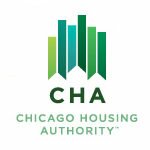 At the next Connect Chicago Meetup, we’ll be learning about the new connectivity, training, and device programs available at Chicago Housing Authority (CHA) sites. This will be our first off-site Connect Chicago Meetup where, in addition to learning from peers and partners in the digital equity field, we will also see Chicago’s learning spaces in person! New programs and resources for public housing residents will be showcased and Meetup attendees will get to learn more about CHA computer labs and the work of CHA digital literacy trainers.
At the next Connect Chicago Meetup, we’ll be learning about the new connectivity, training, and device programs available at Chicago Housing Authority (CHA) sites. This will be our first off-site Connect Chicago Meetup where, in addition to learning from peers and partners in the digital equity field, we will also see Chicago’s learning spaces in person! New programs and resources for public housing residents will be showcased and Meetup attendees will get to learn more about CHA computer labs and the work of CHA digital literacy trainers.